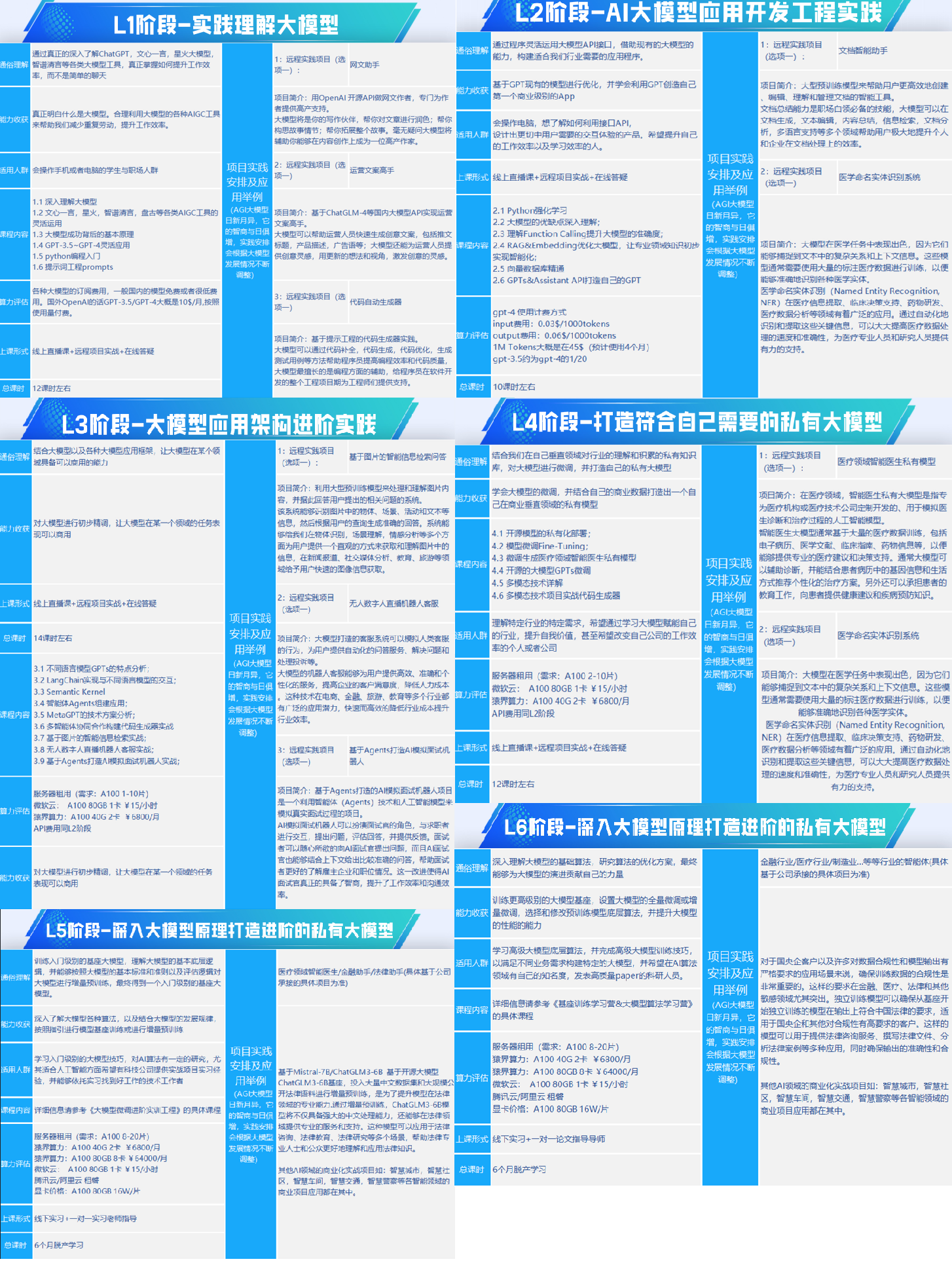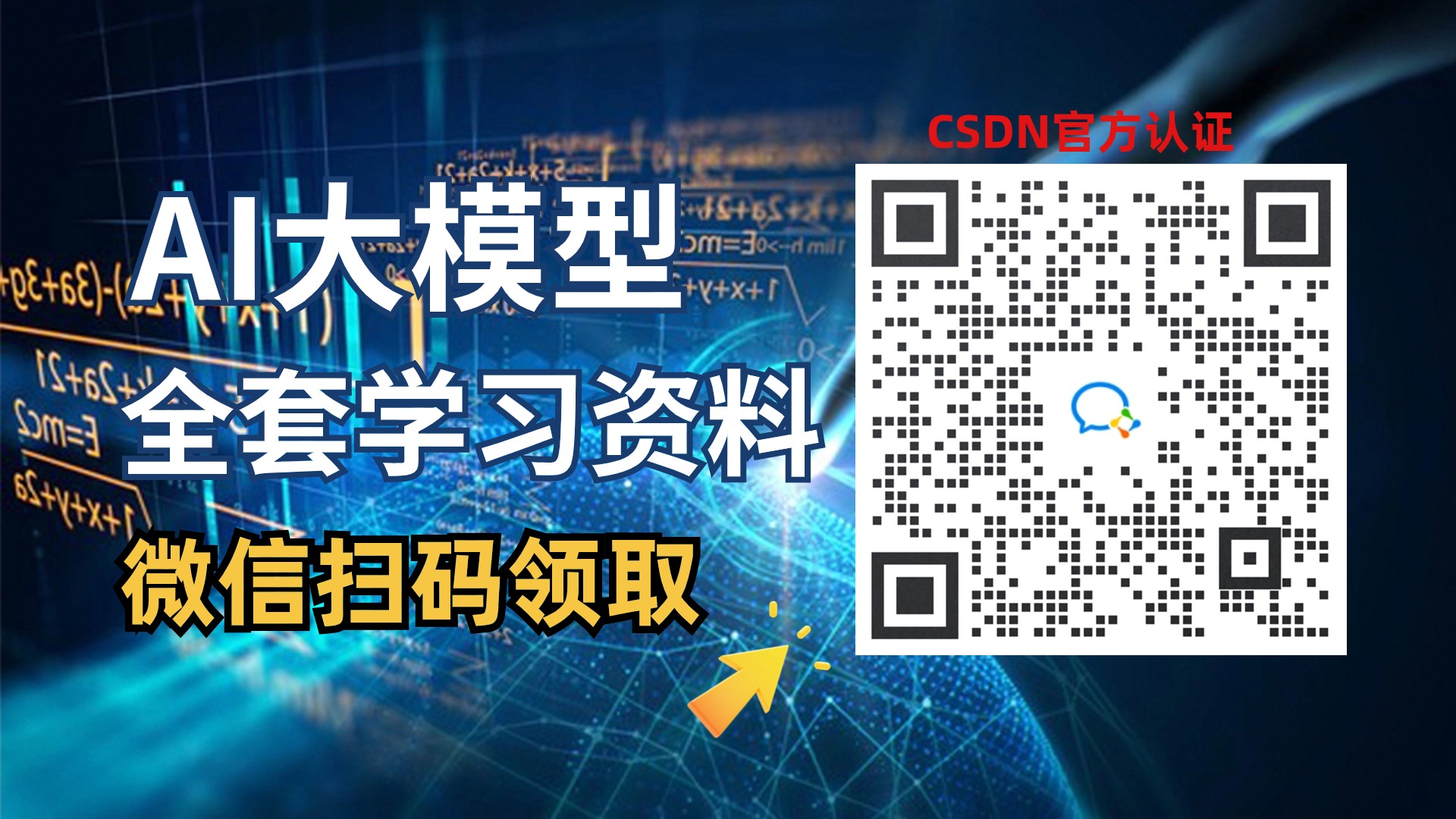安装 Docker 和 docker-compose
Windows 可以使用 wsl
# 安装 Docker
curl -fsSL https://get.docker.com | bash -s docker --mirror Aliyun
systemctl enable --now docker
# 安装 docker-compose
curl -L https://github.com/docker/compose/releases/download/v2.20.3/docker-compose-`uname -s`-`uname -m` -o /usr/local/bin/docker-compose
chmod +x /usr/local/bin/docker-compose
# 验证安装
docker -v
docker-compose -v
安装并启动
docker-compose.yml 和 config.json 这两个文件很重要,安装后不要删掉~
mkdir fastgpt
cd fastgpt
curl -O https://raw.githubusercontent.com/labring/FastGPT/main/files/deploy/fastgpt/docker-compose.yml
curl -O https://raw.githubusercontent.com/labring/FastGPT/main/projects/app/data/config.json
注意启动的时候要在 fastgpt 这个目录
# 启动容器
docker-compose up -d
# 等待10s,OneAPI第一次总是要重启几次才能连上Mysql
sleep 10
# 重启一次oneapi(由于OneAPI的默认Key有点问题,不重启的话会提示找不到渠道,临时手动重启一次解决,等待作者修复)
docker restart oneapi

安装成功后可以看到红框里的容器,m3e后续再说
服务说明
OneAPI:提供标准的API格式,后续M3E和GLM都要对接到这里面
FastGPT:NextJS做的,提供前端和后端的服务
mongo:聊天记录、历史对话等数据
pg:存向量
MySQL:_
M3E:向量化模型
运行 chatglm3-6b 运行chatglm3-6b
克隆项目后,我们安装依赖,记得装CUDA驱动。
我们需要的就是openai_api_demo里面的[api_server.py]
这里需要注意的是,你可以选择提前下载好模型,或者是运行的时候再下载,提前下载可能会快很多~
glm3-6b,这个比较好运行,网上教程非常多,只要跑起来就可以,这里不赘述了

注意是GLM3的不要 下载错了
api_server.py
这里给出来,修改了一下前面的路径,因为我已经提前下载好了模型
import os
import time
import tiktoken
import torch
import uvicorn
from fastapi import FastAPI, HTTPException, Response
from fastapi.middleware.cors import CORSMiddleware
from contextlib import asynccontextmanager
from typing import List, Literal, Optional, Union
from loguru import logger
from pydantic import BaseModel, Field
from transformers import AutoTokenizer, AutoModel
from utils import process_response, generate_chatglm3, generate_stream_chatglm3
from sentence_transformers import SentenceTransformer
from sse_starlette.sse import EventSourceResponse
print(torch.__version__)
print(torch.cuda.is_available())
# Set up limit request time
EventSourceResponse.DEFAULT_PING_INTERVAL = 1000
# 获取当前脚本的目录
current_dir = os.path.dirname(os.path.abspath(__file__))
# 构建相对于当前脚本的模型目录路径
model_dir = os.path.abspath(os.path.join(current_dir, "..", "..", "chatglm3-6b"))
print(f"model_dir: {model_dir}")
# 设置环境变量
os.environ['MODEL_PATH'] = model_dir
os.environ['TOKENIZER_PATH'] = model_dir
print("MODEL_PATH:", os.getenv('MODEL_PATH'))
print("TOKENIZER_PATH:", os.getenv('TOKENIZER_PATH'))
# set LLM path
MODEL_PATH = os.environ.get('MODEL_PATH', 'THUDM/chatglm3-6b')
TOKENIZER_PATH = os.environ.get("TOKENIZER_PATH", MODEL_PATH)
# set Embedding Model path
EMBEDDING_PATH = os.environ.get('EMBEDDING_PATH', 'BAAI/bge-m3')
@asynccontextmanager
async def lifespan(app: FastAPI):
yield
if torch.cuda.is_available():
torch.cuda.empty_cache()
torch.cuda.ipc_collect()
app = FastAPI(lifespan=lifespan)
app.add_middleware(
CORSMiddleware,
allow_origins=["*"],
allow_credentials=True,
allow_methods=["*"],
allow_headers=["*"],
)
class ModelCard(BaseModel):
id: str
object: str = "model"
created: int = Field(default_factory=lambda: int(time.time()))
owned_by: str = "owner"
root: Optional[str] = None
parent: Optional[str] = None
permission: Optional[list] = None
class ModelList(BaseModel):
object: str = "list"
data: List[ModelCard] = []
class FunctionCallResponse(BaseModel):
name: Optional[str] = None
arguments: Optional[str] = None
class ChatMessage(BaseModel):
role: Literal["user", "assistant", "system", "function"]
content: str = None
name: Optional[str] = None
function_call: Optional[FunctionCallResponse] = None
class DeltaMessage(BaseModel):
role: Optional[Literal["user", "assistant", "system"]] = None
content: Optional[str] = None
function_call: Optional[FunctionCallResponse] = None
## for Embedding
class EmbeddingRequest(BaseModel):
input: Union[List[str], str]
model: str
class CompletionUsage(BaseModel):
prompt_tokens: int
completion_tokens: int
total_tokens: int
class EmbeddingResponse(BaseModel):
data: list
model: str
object: str
usage: CompletionUsage
# for ChatCompletionRequest
class UsageInfo(BaseModel):
prompt_tokens: int = 0
total_tokens: int = 0
completion_tokens: Optional[int] = 0
class ChatCompletionRequest(BaseModel):
model: str
messages: List[ChatMessage]
temperature: Optional[float] = 0.8
top_p: Optional[float] = 0.8
max_tokens: Optional[int] = None
stream: Optional[bool] = False
tools: Optional[Union[dict, List[dict]]] = None
repetition_penalty: Optional[float] = 1.1
class ChatCompletionResponseChoice(BaseModel):
index: int
message: ChatMessage
finish_reason: Literal["stop", "length", "function_call"]
class ChatCompletionResponseStreamChoice(BaseModel):
delta: DeltaMessage
finish_reason: Optional[Literal["stop", "length", "function_call"]]
index: int
class ChatCompletionResponse(BaseModel):
model: str
id: str
object: Literal["chat.completion", "chat.completion.chunk"]
choices: List[Union[ChatCompletionResponseChoice, ChatCompletionResponseStreamChoice]]
created: Optional[int] = Field(default_factory=lambda: int(time.time()))
usage: Optional[UsageInfo] = None
@app.get("/health")
async def health() -> Response:
"""Health check."""
return Response(status_code=200)
@app.post("/v1/embeddings", response_model=EmbeddingResponse)
async def get_embeddings(request: EmbeddingRequest):
if isinstance(request.input, str):
embeddings = [embedding_model.encode(request.input)]
else:
embeddings = [embedding_model.encode(text) for text in request.input]
embeddings = [embedding.tolist() for embedding in embeddings]
def num_tokens_from_string(string: str) -> int:
"""
Returns the number of tokens in a text string.
use cl100k_base tokenizer
"""
encoding = tiktoken.get_encoding('cl100k_base')
num_tokens = len(encoding.encode(string))
return num_tokens
response = {
"data": [
{
"object": "embedding",
"embedding": embedding,
"index": index
}
for index, embedding in enumerate(embeddings)
],
"model": request.model,
"object": "list",
"usage": CompletionUsage(
prompt_tokens=sum(len(text.split()) for text in request.input),
completion_tokens=0,
total_tokens=sum(num_tokens_from_string(text) for text in request.input),
)
}
return response
@app.get("/v1/models", response_model=ModelList)
async def list_models():
model_card = ModelCard(
id="chatglm3-6b"
)
return ModelList(
data=[model_card]
)
@app.post("/v1/chat/completions", response_model=ChatCompletionResponse)
async def create_chat_completion(request: ChatCompletionRequest):
global model, tokenizer
if len(request.messages) < 1 or request.messages[-1].role == "assistant":
raise HTTPException(status_code=400, detail="Invalid request")
gen_params = dict(
messages=request.messages,
temperature=request.temperature,
top_p=request.top_p,
max_tokens=request.max_tokens or 1024,
echo=False,
stream=request.stream,
repetition_penalty=request.repetition_penalty,
tools=request.tools,
)
logger.debug(f"==== request ====\n{gen_params}")
if request.stream:
# Use the stream mode to read the first few characters, if it is not a function call, direct stram output
predict_stream_generator = predict_stream(request.model, gen_params)
output = next(predict_stream_generator)
if not contains_custom_function(output):
return EventSourceResponse(predict_stream_generator, media_type="text/event-stream")
# Obtain the result directly at one time and determine whether tools needs to be called.
logger.debug(f"First result output:\n{output}")
function_call = None
if output and request.tools:
try:
function_call = process_response(output, use_tool=True)
except:
logger.warning("Failed to parse tool call")
# CallFunction
if isinstance(function_call, dict):
function_call = FunctionCallResponse(**function_call)
"""
In this demo, we did not register any tools.
You can use the tools that have been implemented in our `tools_using_demo` and implement your own streaming tool implementation here.
Similar to the following method:
function_args = json.loads(function_call.arguments)
tool_response = dispatch_tool(tool_name: str, tool_params: dict)
"""
tool_response = ""
if not gen_params.get("messages"):
gen_params["messages"] = []
gen_params["messages"].append(ChatMessage(
role="assistant",
content=output,
))
gen_params["messages"].append(ChatMessage(
role="function",
name=function_call.name,
content=tool_response,
))
# Streaming output of results after function calls
generate = predict(request.model, gen_params)
return EventSourceResponse(generate, media_type="text/event-stream")
else:
# Handled to avoid exceptions in the above parsing function process.
generate = parse_output_text(request.model, output)
return EventSourceResponse(generate, media_type="text/event-stream")
# Here is the handling of stream = False
response = generate_chatglm3(model, tokenizer, gen_params)
# Remove the first newline character
if response["text"].startswith("\n"):
response["text"] = response["text"][1:]
response["text"] = response["text"].strip()
usage = UsageInfo()
function_call, finish_reason = None, "stop"
if request.tools:
try:
function_call = process_response(response["text"], use_tool=True)
except:
logger.warning("Failed to parse tool call, maybe the response is not a tool call or have been answered.")
if isinstance(function_call, dict):
finish_reason = "function_call"
function_call = FunctionCallResponse(**function_call)
message = ChatMessage(
role="assistant",
content=response["text"],
function_call=function_call if isinstance(function_call, FunctionCallResponse) else None,
)
logger.debug(f"==== message ====\n{message}")
choice_data = ChatCompletionResponseChoice(
index=0,
message=message,
finish_reason=finish_reason,
)
task_usage = UsageInfo.model_validate(response["usage"])
for usage_key, usage_value in task_usage.model_dump().items():
setattr(usage, usage_key, getattr(usage, usage_key) + usage_value)
return ChatCompletionResponse(
model=request.model,
id="", # for open_source model, id is empty
choices=[choice_data],
object="chat.completion",
usage=usage
)
async def predict(model_id: str, params: dict):
global model, tokenizer
choice_data = ChatCompletionResponseStreamChoice(
index=0,
delta=DeltaMessage(role="assistant"),
finish_reason=None
)
chunk = ChatCompletionResponse(model=model_id, id="", choices=[choice_data], object="chat.completion.chunk")
yield "{}".format(chunk.model_dump_json(exclude_unset=True))
previous_text = ""
for new_response in generate_stream_chatglm3(model, tokenizer, params):
decoded_unicode = new_response["text"]
delta_text = decoded_unicode[len(previous_text):]
previous_text = decoded_unicode
finish_reason = new_response["finish_reason"]
if len(delta_text) == 0 and finish_reason != "function_call":
continue
function_call = None
if finish_reason == "function_call":
try:
function_call = process_response(decoded_unicode, use_tool=True)
except:
logger.warning(
"Failed to parse tool call, maybe the response is not a tool call or have been answered.")
if isinstance(function_call, dict):
function_call = FunctionCallResponse(**function_call)
delta = DeltaMessage(
content=delta_text,
role="assistant",
function_call=function_call if isinstance(function_call, FunctionCallResponse) else None,
)
choice_data = ChatCompletionResponseStreamChoice(
index=0,
delta=delta,
finish_reason=finish_reason
)
chunk = ChatCompletionResponse(
model=model_id,
id="",
choices=[choice_data],
object="chat.completion.chunk"
)
yield "{}".format(chunk.model_dump_json(exclude_unset=True))
choice_data = ChatCompletionResponseStreamChoice(
index=0,
delta=DeltaMessage(),
finish_reason="stop"
)
chunk = ChatCompletionResponse(
model=model_id,
id="",
choices=[choice_data],
object="chat.completion.chunk"
)
yield "{}".format(chunk.model_dump_json(exclude_unset=True))
yield '[DONE]'
def predict_stream(model_id, gen_params):
"""
The function call is compatible with stream mode output.
The first seven characters are determined.
If not a function call, the stream output is directly generated.
Otherwise, the complete character content of the function call is returned.
:param model_id:
:param gen_params:
:return:
"""
output = ""
is_function_call = False
has_send_first_chunk = False
for new_response in generate_stream_chatglm3(model, tokenizer, gen_params):
decoded_unicode = new_response["text"]
delta_text = decoded_unicode[len(output):]
output = decoded_unicode
# When it is not a function call and the character length is> 7,
# try to judge whether it is a function call according to the special function prefix
if not is_function_call and len(output) > 7:
# Determine whether a function is called
is_function_call = contains_custom_function(output)
if is_function_call:
continue
# Non-function call, direct stream output
finish_reason = new_response["finish_reason"]
# Send an empty string first to avoid truncation by subsequent next() operations.
if not has_send_first_chunk:
message = DeltaMessage(
content="",
role="assistant",
function_call=None,
)
choice_data = ChatCompletionResponseStreamChoice(
index=0,
delta=message,
finish_reason=finish_reason
)
chunk = ChatCompletionResponse(
model=model_id,
id="",
choices=[choice_data],
created=int(time.time()),
object="chat.completion.chunk"
)
yield "{}".format(chunk.model_dump_json(exclude_unset=True))
send_msg = delta_text if has_send_first_chunk else output
has_send_first_chunk = True
message = DeltaMessage(
content=send_msg,
role="assistant",
function_call=None,
)
choice_data = ChatCompletionResponseStreamChoice(
index=0,
delta=message,
finish_reason=finish_reason
)
chunk = ChatCompletionResponse(
model=model_id,
id="",
choices=[choice_data],
created=int(time.time()),
object="chat.completion.chunk"
)
yield "{}".format(chunk.model_dump_json(exclude_unset=True))
if is_function_call:
yield output
else:
yield '[DONE]'
async def parse_output_text(model_id: str, value: str):
"""
Directly output the text content of value
:param model_id:
:param value:
:return:
"""
choice_data = ChatCompletionResponseStreamChoice(
index=0,
delta=DeltaMessage(role="assistant", content=value),
finish_reason=None
)
chunk = ChatCompletionResponse(model=model_id, id="", choices=[choice_data], object="chat.completion.chunk")
yield "{}".format(chunk.model_dump_json(exclude_unset=True))
choice_data = ChatCompletionResponseStreamChoice(
index=0,
delta=DeltaMessage(),
finish_reason="stop"
)
chunk = ChatCompletionResponse(model=model_id, id="", choices=[choice_data], object="chat.completion.chunk")
yield "{}".format(chunk.model_dump_json(exclude_unset=True))
yield '[DONE]'
def contains_custom_function(value: str) -> bool:
"""
Determine whether 'function_call' according to a special function prefix.
For example, the functions defined in "tools_using_demo/tool_register.py" are all "get_xxx" and start with "get_"
[Note] This is not a rigorous judgment method, only for reference.
:param value:
:return:
"""
return value and 'get_' in value
if __name__ == "__main__":
# Load LLM
tokenizer = AutoTokenizer.from_pretrained(os.getenv('TOKENIZER_PATH'), trust_remote_code=True)
model = AutoModel.from_pretrained(os.getenv('MODEL_PATH'), trust_remote_code=True, device_map="auto").eval()
# load Embedding
embedding_model = SentenceTransformer(EMBEDDING_PATH, device="cuda")
uvicorn.run(app, host='0.0.0.0', port=8888, workers=1)
运行成功后

安装 M3E
可以参考官方给出的镜像,这个自己搞容易出问题,直接使用镜像最方便,[接入 M3E 向量模型]
配置 OneAPI
重点来了,OneAPI 目前这个地方有个坑,你参考这篇文章的时候,[接入 M3E 向量模型],记得Base URL一定要填写具体的IP地址。
我的M3E在WSL里面

我的ChatGLM API 在本机本地运行

测试
如果响应时间特别长,就是有问题

增加 config.json 配置
这里我直接给出我增加的内容,配置文件说明请看 [配置文件介绍]
{
"feConfigs": {
"lafEnv": "https://laf.dev"
},
"systemEnv": {
"openapiPrefix": "fastgpt",
"vectorMaxProcess": 15,
"qaMaxProcess": 15,
"pgHNSWEfSearch": 100
},
"llmModels": [
{
"model": "gpt-3.5-turbo",
"name": "gpt-3.5-turbo",
"maxContext": 16000,
"avatar": "/imgs/model/openai.svg",
"maxResponse": 4000,
"quoteMaxToken": 13000,
"maxTemperature": 1.2,
"charsPointsPrice": 0,
"censor": false,
"vision": false,
"datasetProcess": true,
"usedInClassify": true,
"usedInExtractFields": true,
"usedInToolCall": true,
"usedInQueryExtension": true,
"toolChoice": true,
"functionCall": true,
"customCQPrompt": "",
"customExtractPrompt": "",
"defaultSystemChatPrompt": "",
"defaultConfig": {}
},
{
"model": "gpt-4-0125-preview",
"name": "gpt-4-turbo",
"avatar": "/imgs/model/openai.svg",
"maxContext": 125000,
"maxResponse": 4000,
"quoteMaxToken": 100000,
"maxTemperature": 1.2,
"charsPointsPrice": 0,
"censor": false,
"vision": false,
"datasetProcess": false,
"usedInClassify": true,
"usedInExtractFields": true,
"usedInToolCall": true,
"usedInQueryExtension": true,
"toolChoice": true,
"functionCall": false,
"customCQPrompt": "",
"customExtractPrompt": "",
"defaultSystemChatPrompt": "",
"defaultConfig": {}
},
{
"model": "gpt-4-vision-preview",
"name": "gpt-4-vision",
"avatar": "/imgs/model/openai.svg",
"maxContext": 128000,
"maxResponse": 4000,
"quoteMaxToken": 100000,
"maxTemperature": 1.2,
"charsPointsPrice": 0,
"censor": false,
"vision": true,
"datasetProcess": false,
"usedInClassify": false,
"usedInExtractFields": false,
"usedInToolCall": false,
"usedInQueryExtension": false,
"toolChoice": true,
"functionCall": false,
"customCQPrompt": "",
"customExtractPrompt": "",
"defaultSystemChatPrompt": "",
"defaultConfig": {}
},
{
"model": "chatglm3-6b",
"name": "chatglm3-6b",
"maxContext": 8000,
"maxResponse": 8000,
"quoteMaxToken": 2000,
"maxTemperature": 1,
"vision": false,
"defaultSystemChatPrompt": ""
}
],
"vectorModels": [
{
"model": "m3e",
"name": "M3E(测试使用)",
"price": 0.1,
"defaultToken": 500,
"maxToken": 1800
}
],
"reRankModels": [],
"audioSpeechModels": [
{
"model": "tts-1",
"name": "OpenAI TTS1",
"charsPointsPrice": 0,
"voices": [
{
"label": "Alloy",
"value": "alloy",
"bufferId": "openai-Alloy"
},
{
"label": "Echo",
"value": "echo",
"bufferId": "openai-Echo"
},
{
"label": "Fable",
"value": "fable",
"bufferId": "openai-Fable"
},
{
"label": "Onyx",
"value": "onyx",
"bufferId": "openai-Onyx"
},
{
"label": "Nova",
"value": "nova",
"bufferId": "openai-Nova"
},
{
"label": "Shimmer",
"value": "shimmer",
"bufferId": "openai-Shimmer"
}
]
}
],
"whisperModel": {
"model": "whisper-1",
"name": "Whisper1",
"charsPointsPrice": 0
}
}
常见问题
- 使用
WSL最好电脑内存大点,WSL这玩意很吃内存 - 能用
docker就用docker,很多都是因为配置的问题出错 - 显存不够可以量化,不行就用
API
如何学习AI大模型?
我在一线互联网企业工作十余年里,指导过不少同行后辈。帮助很多人得到了学习和成长。
我意识到有很多经验和知识值得分享给大家,也可以通过我们的能力和经验解答大家在人工智能学习中的很多困惑,所以在工作繁忙的情况下还是坚持各种整理和分享。但苦于知识传播途径有限,很多互联网行业朋友无法获得正确的资料得到学习提升,故此将并将重要的AI大模型资料包括AI大模型入门学习思维导图、精品AI大模型学习书籍手册、视频教程、实战学习等录播视频免费分享出来。

第一阶段: 从大模型系统设计入手,讲解大模型的主要方法;
第二阶段: 在通过大模型提示词工程从Prompts角度入手更好发挥模型的作用;
第三阶段: 大模型平台应用开发借助阿里云PAI平台构建电商领域虚拟试衣系统;
第四阶段: 大模型知识库应用开发以LangChain框架为例,构建物流行业咨询智能问答系统;
第五阶段: 大模型微调开发借助以大健康、新零售、新媒体领域构建适合当前领域大模型;
第六阶段: 以SD多模态大模型为主,搭建了文生图小程序案例;
第七阶段: 以大模型平台应用与开发为主,通过星火大模型,文心大模型等成熟大模型构建大模型行业应用。

👉学会后的收获:👈
• 基于大模型全栈工程实现(前端、后端、产品经理、设计、数据分析等),通过这门课可获得不同能力;
• 能够利用大模型解决相关实际项目需求: 大数据时代,越来越多的企业和机构需要处理海量数据,利用大模型技术可以更好地处理这些数据,提高数据分析和决策的准确性。因此,掌握大模型应用开发技能,可以让程序员更好地应对实际项目需求;
• 基于大模型和企业数据AI应用开发,实现大模型理论、掌握GPU算力、硬件、LangChain开发框架和项目实战技能, 学会Fine-tuning垂直训练大模型(数据准备、数据蒸馏、大模型部署)一站式掌握;
• 能够完成时下热门大模型垂直领域模型训练能力,提高程序员的编码能力: 大模型应用开发需要掌握机器学习算法、深度学习框架等技术,这些技术的掌握可以提高程序员的编码能力和分析能力,让程序员更加熟练地编写高质量的代码。

1.AI大模型学习路线图
2.100套AI大模型商业化落地方案
3.100集大模型视频教程
4.200本大模型PDF书籍
5.LLM面试题合集
6.AI产品经理资源合集
👉获取方式:
😝有需要的小伙伴,可以保存图片到wx扫描二v码免费领取【保证100%免费】🆓






















 4279
4279











 被折叠的 条评论
为什么被折叠?
被折叠的 条评论
为什么被折叠?








